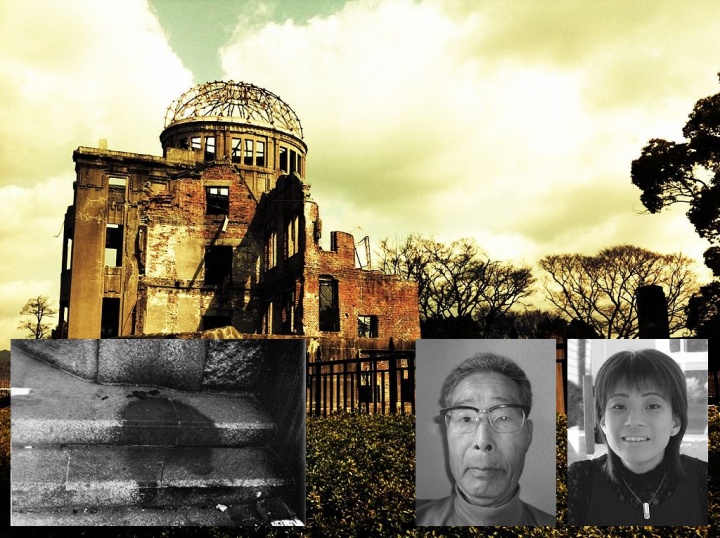In War, Nobody Wins
Lessons From Hiroshima and Nagasaki

70 years ago this month the United States dropped the atomic bomb on Hiroshima, Japan. Three days later another one was dropped on Nagasaki, stopping World War II instantly. Hundreds of thousands civilians perished either immediately in the blast or shortly afterwards from nuclear-induced injuries. It was awful. While “necessary” to end World War II, the toll paid by civilians is unthinkable. Japan has not forgotten the impact and horror of that day and what it has meant for mankind.
My dear friend, Dr. Yumi Yamamoto, an ophthalmologist, lives in Kochi, 100 miles from Hiroshima. She and I have worked together on various humanitarian projects, including the earthquake and tsunami damage in Northern Japan four years ago. She wrote to me on Aug. 9 and told me the nation of Japan was in prayer over the huge loss of life on that day 70 years ago.
While much of the generation of World War II is passing, Yumi still has acquaintances and patients who remember what happened on Hiroshima and wrote the following account for me.
One of those people is Sajio Ibaraki. He was born in 1929 in Japan. His first experience of the war was in 1937 when he was 8 years old with the start of the second Sino-Japanese War (Battle of Shanghai), which became a trigger for World War II. In 1945 Mr. Ibaraki was a first-year student at high school in the countryside of Kochi, Shikoku Island. Some of his friends were evacuated from the large cities of Japan to smaller cities to avoid air raids. First year students were not compelled by the government to work. However, older high school students were forced to work on the new local airport or were sent to munitions companies in other cities.
Mr. Ibaraki remembered Aug. 6, 1945, to be a beautiful and peaceful summer day. He enjoyed fishing at the river with his friends. The mountains were green, and the sky was bright and clear. Suddenly he saw a flash of light in the sky. Later, he understood it was the moment the atomic bomb had been dropped in Hiroshima 100 miles away. People started talking that the United States had dropped a new type of the bomb in Hiroshima. After three days on Aug. 9th, another one was dropped in Nagasaki.
After graduation from high school, Mr. Ibaraki became a bank clerk, and in 1948 he moved to Hiroshima. There he met many people who had experienced the war and the atomic bomb, but most of them were older than him. Most are deceased now. It is hard to find anyone now who were right in Hiroshima and experienced what happened, but Mr. Ibaraki still has a 90-year-old friend who lives there. She was also a student in 1945 and experienced the bomb. She had burns in the sudden explosion but thankfully was not killed and is still living. She still has dreadful scars on her body from the burns. Mr. Ibaraki knows another lady who was the wife of his boss at the bank. He remembers her to be a very beautiful lady who always wore an elegant kimono. First he did not know why, but later he learned that she also had horrible keloids on her legs and would not wear skirts.
In 1945 the population of Hiroshima was about 350,000. A few months after the bomb the number of people who were killed was 166,000 directly by the explosion or the exposure to radiation. But later more and more people died because of the radiation.
Mr. Ibaraki says that he is very troubled by the fact that there are still some people in the world who argue about the ethics and morality of using nuclear weapons. They should never be used! This is the message from Hiroshima and Nagasaki.
Because it has been 70 years since that fateful event and more and more people are now deceased, there are fewer people who really know how dreadful, how meaningless and how stupid war is. Mr. Ibaraki insists that after the war, whether you may win or lose, all you feel is pity and a regret for yourself and others. There is no real "winner" in any war.
Hiroshima Peace Memorial Park is a site where almost all Japanese have visited as well as many visitors from around the world. It was obvious the bomb destroyed and burned everything around the area in one moment, but on the stone paving of the old bank building there is left a “shadow” of a person who was waiting for the bank open on the day. No one knows how this shadow had been left there.
As I communicate with my friends in Japan about these traumatic events, I just want to meditate and think about what these people went through in the nuclear holocaust as we live in a time of the proliferation of such weapons.
Read our study aid Are We Living in the Time of the End? It will give you more think about and have hope in our very troubled times.
